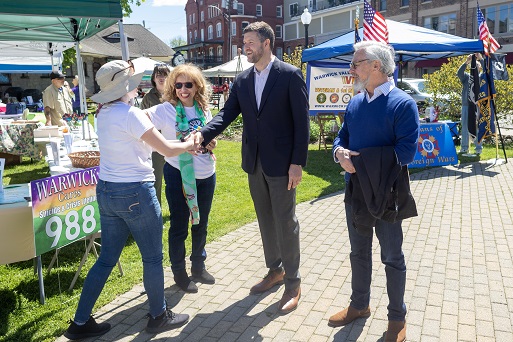By Myrek Zastavnyi
In the world of politics, competition and rivalry are expected. Candidates vie for the favor of the electorate, seeking to prove themselves as the best choice for public office.
While debate, policy discussions, and campaigning have traditionally been the tools of the trade, there is a disconcerting trend in contested elections where some candidates or their supporters resort to smear tactics, often using social media, targeted mailers, (Jason O.Klett (2023, October 25, p.9)The Election Showdown: Warwick Wars of Anonymity), and now, even lawn signs to tarnish their opponents’ image rather than promoting their own platform and qualifications.
Lawn signs have been a staple of such political campaigns. Typically, these signs are used to display the candidate’s name, party affiliation, and campaign slogans or promises, providing a brief and straightforward introduction to the candidate’s platform. However, in some instances, these signs are no longer used as tools for self-promotion, but rather as weapons aimed at sullying the reputation of political adversaries.
The Dispatch reached out to Candidate for Chester Town Supervisor Brandon Holdridge, who has confirmed that signs attacking incumbent candidate Robert Valentine, are part of his campaign, and are specifically targeted “to educate and remind the public of my opponent’s record.”
Robert Valentine, incumbent candidate running for re-election, stated that his opponent’s strategy aims to not only tarnish his reputation but also “ to divert attention away from Holdridge’s own shortcomings and lack of a comprehensive platform.”

He added, “The accusations are baseless and false. This is an ill-conceived smear campaign by my competitor for The Town Board from the opposing party, aimed to mislead voters with half-truths and false information.”
Whether you believe and agree with either candidate, the use of smear tactics on lawn signs is concerning for several reasons. First and foremost, it erodes the integrity of the democratic process. It can lead to a more polarized and divisive political climate where candidates prioritize character attacks over substantive policy discussions. Moreover, it may deter qualified individuals from seeking public office, as the prospect of a hostile and aggressive campaign can be discouraging.
Furthermore, these tactics can create confusion and mistrust among voters who may struggle to discern fact from fiction. Such tactics undermine the very essence of a fair and informed electorate that is essential for a healthy democracy.
To counteract this concerning trend, candidates, election officials, advocacy groups, and voters must unite to champion a return to civil discourse, focusing on substantive issues, and preserving the core principles of democracy. Only through such collective efforts can the political landscape remain respectful, transparent, and conducive to informed decision-making.






